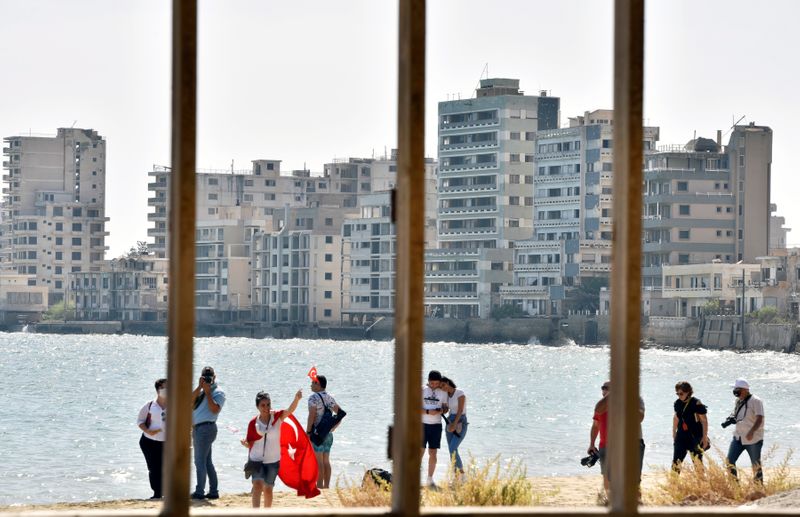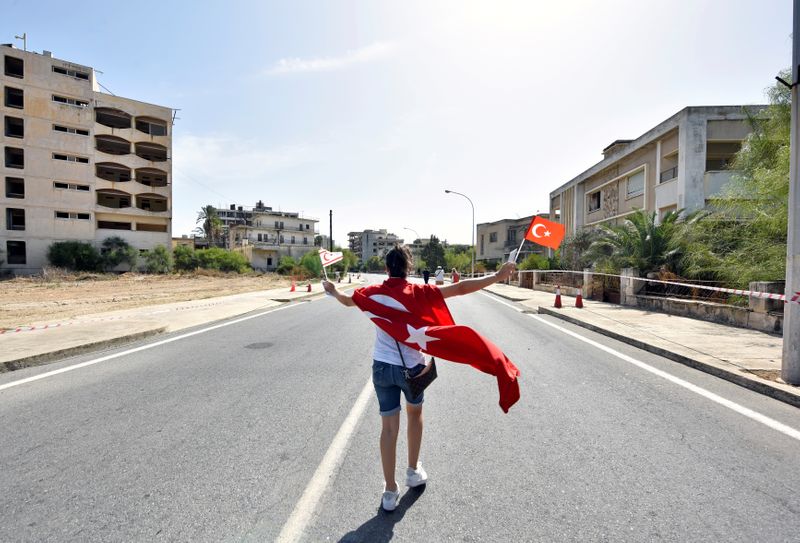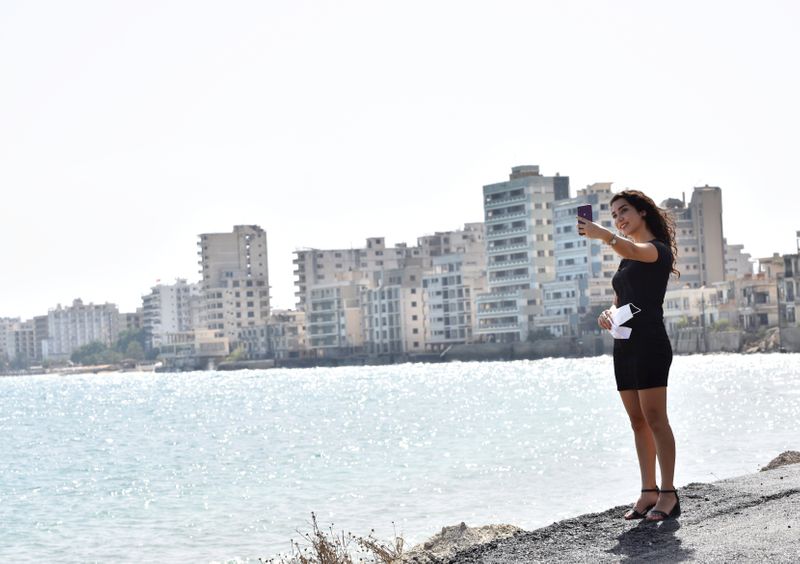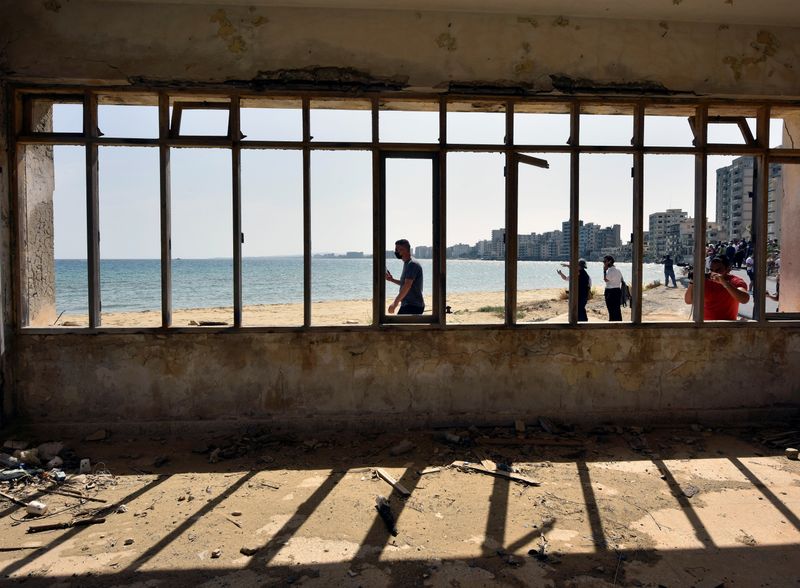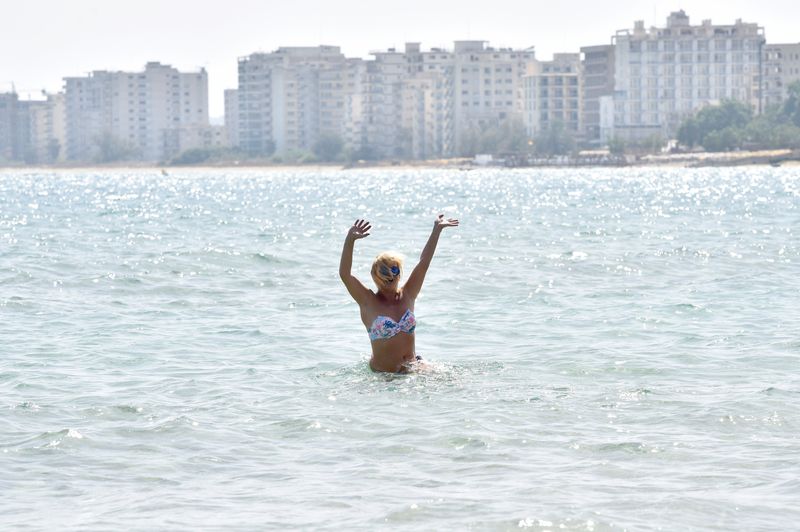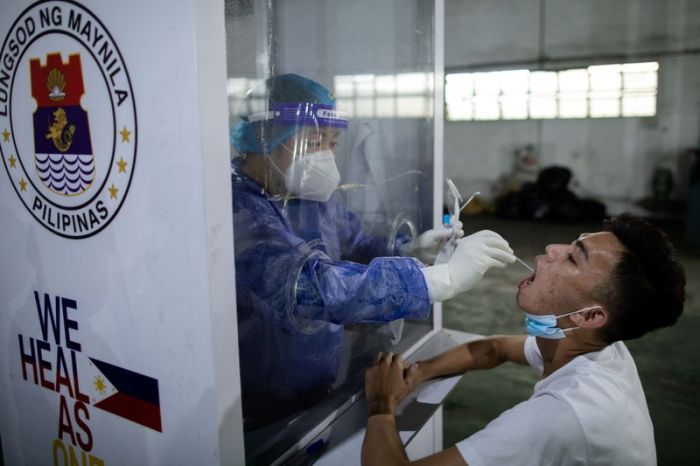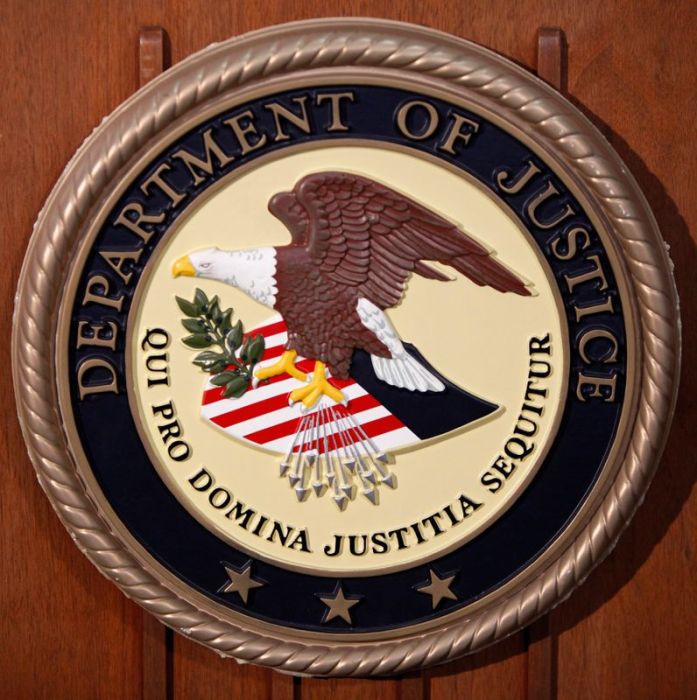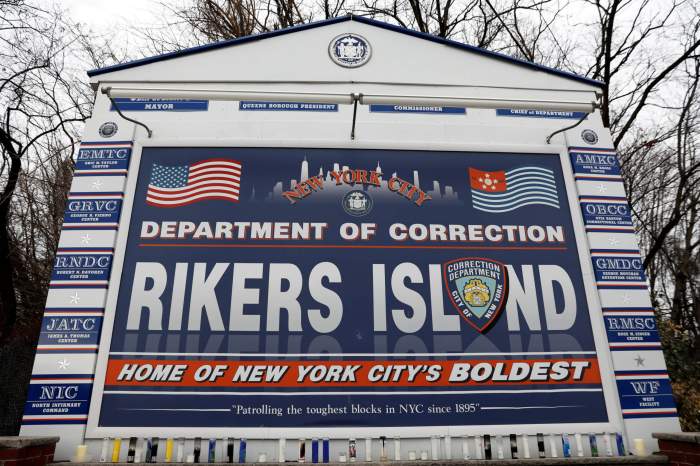NICOSIA (Reuters) – Northern Cyprus on Thursday reopened part of the beachfront of a resort abandoned since Turkey invaded the island in 1974, taking a step supported by Ankara but condemned by Greek Cypriots and causing concern internationally.
People wearing face masks streamed in after being allowed through a checkpoint by police near the beachfront of Varosha, a deserted suburb of Famagusta city in breakaway Northern Cyprus, in the east of the divided Mediterranean island.
The move could hurt efforts to revive settlement talks on the island and stoke Turkey’s row with EU members Cyprus and Greece over east Mediterranean maritime rights, which cooled after Ankara and Athens agreed to resume talks..
Ersin Tatar, premier of Northern Cyprus (KKTC) which is only recognised by Turkey, unveiled the move in Ankara on Tuesday alongside President Tayyip Erdogan, who said he hoped the whole of the district would be opened up.
Tatar is a candidate in presidential elections in the breakaway enclave scheduled this Sunday, Oct. 11.
An affluent neighbourhood of high rise hotels, residences and shops, Varosha’s 39,000 Greek Cypriot residents fled in the second wave of an invasion mounted by Turkey in 1974 triggered by a brief Greek inspired coup. It was sealed off by the Turkish military, and effectively left to rot.
Stories of widespread looting in the area, or of bank vaults being cleared out in the aftermath of division are widespread among the Cypriot population.
Successive United Nations Security Council resolutions have called for the transfer of the area to the administration of the United Nations.
Greek Cypriots received the news with dismay; out of bounds for decades, sealed off Varosha symbolised for many displaced Cypriots an enduring hope of one day returning. Varosha was one of Cyprus’s more vibrant areas where many writers, musicians and artists lived.
“Its a terrible day,” said art historian and archaeologist Anna Marangou, who was 22 when she was forced to flee.
CYPRUS, GREECE PROTEST
Nicos Anastasiades, Cyprus’s internationally recognised president, called the move ‘illegal’. It has already condemned the move and said it would file a recourse to the United Nations Security Council. Russia said re-opening the beach was unacceptable.
The Turkish Defence Ministry released photos showing small groups of people wandering along roads surrounded by deserted buildings and near Varosha’s sandy beach, including one woman with a large Turkish flag draped on her back.
“May this step, which has a big symbolic meaning and which ends a 46-year-old longing, be beneficial for the KKTC and our brethren who live there,” the ministry said.
The EU has said it is deeply concerned by the move, saying it will cause greater tensions and may complicate efforts for the resumption of Cyprus settlement talks. U.N. Secretary-General Antonio Guterres has also voiced concern.
The latest attempt at reunification between the two Cypriot sides collapsed in disarray in mid-2017, with each side blaming the other for the collapse. The discovery of offshore energy resources has complicated efforts to resolve its partition.
Sources in Cyprus said the plan was to open up about 1.5 km (1 mile) of beachfront to the public and not some 6 square km (2.3 sq miles) inland.
Varosha was one of the territories slated to be turned over to Greek Cypriot control under a United Nations reunification blueprint put to referendum in 2004. The plan failed, since it was accepted by Turkish Cypriots but rejected by Greek Cypriots.
(Additional reporting by George Georgiopoulos and Angeliki Koutantou in Athens; Writing by Daren Butler; Editing by Jonathan Spicer and Alexandra Hudson)

